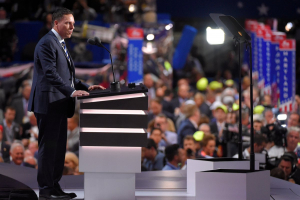Support migrant centric journalism today and donate

Hundreds of people are reportedly being refused Irish visas amid fears that they will use Irish immigration status to enter the UK mainland. New figures show that Ireland is seemingly helping the British government enforce its anti-immigration policies.
Previously unseen data, obtained by VICE News, shows a spike in UK visa refusals, while hundreds more were denied entry upon landing in Irish airports, on grounds that they ‘might travel onward’ to the UK.
According to figures for 2019, 525 people were refused entry to Ireland (leave to land) based solely or partially on fears that they would travel onward to Northern Ireland or the British mainland (England, Scotland and Wales). Hundreds more were refused because they ‘did not comply with UK immigration rules.’
Brazilians and US citizens worst affected
The data shows that nationals of Brazil and the United States were worst affected by entry refusals, with more than 40 per cent denied entry to Ireland. According to a VICE News report ‘the role Ireland plays in securing its common travel area with Britain, and the impact this has on migrants, is a long-standing but often unscrutinised policy.’
Since 2016, the common travel area policy has become more prominent amid the emergence of Brexit. Questions have been asked about how mainland UK would maintain an open border with the Republic of Ireland while also ‘ceasing control.’
The sensitivity of the issue was highlighted following the 2016 EU referendum, after a senior British minister’s proposal that UK immigration controls for non-EU travellers should be handed to Irish airports was heavily criticised by politicians from all the major Irish parties.
Those opposed to the proposal called it a ‘non-starter’ and ‘ridiculous’ while likening the suggestion to US President Donald Trump’s promise that Mexico would ‘pay for the wall.’
Irish airports securing British borders
However, the data obtained by VICE News indicates that Irish airports are playing a big part in helping to secure Britain’s borders.
Paul Murphy, an opposition member of Ireland’s parliament with the RISE party based in Dublin, said: “It is very concerning that hundreds of people are being prevented from entering Ireland as a result of UK immigration rules.”
“Under the right-wing Tory government, Britain is adopting immigration rules which are more and more racist. The fact that they are de facto then applied to travellers into Ireland is outrageous,” Murphy added.
According to the information seen by VICE News, fears that someone would travel onward to Northern Ireland or the UK mainland was the fourth most common reason for visa or port of entry refusal. Other reasons given were invalid visas or the ‘catch-all reason’ of attempting to enter Ireland for ‘purposes other than those expressed.’
Fiona Finn, the CEO of Irish migrant rights charity Nasc, said: “The consequences of a refusal are more than just being turned around from Ireland. The record can stalk a person for years – to be declared on every future visa application, and impacting any future plans to enter Ireland or the UK.”
Migrant rights charities concerned
Charities that stand for migrant rights have long expressed concerns about a lack of safeguards, including the absence of an appeals process. Ms Finn said: “Entry refusal is often a subjective decision by an Immigration Officer at the border without adequate oversight.”
“Refusals at Irish borders continue to be one of the least transparent elements of our immigration system. By its very nature, those who most need help and assistance are those precluded from accessing it,” Finn added.
The hostile nature of UK immigration policies is reportedly affecting those applying for visit visas to enter Ireland, according to VICE News.
Its report states: “People seeking to visit or move to Ireland may be denied a visa if they have an adverse immigration history in the UK. This can range from previously being deported to simply having had a visa refused by UK authorities in the past.”
Migrant right charities argue that even if there has been no previous history with UK immigration authorities, Ireland visas can still be refused should Irish authorities deem an applicant ‘likely to branch into the common travel area’ between Ireland and the UK.
A statement from Ireland’s Department of Justice, which oversees the country’s immigration policy, said: “Data on the number of visas refused on these grounds is not available. However, an examination of visa refusals for one week alone in 2018 show these reasons cited in 10 per cent of cases.”
Brexit impact unknown
With Britain’s Brexit transitional period nearing completion, it’s unknown what impact the UK’s exit from the EU will have on immigration policy. However, there’s a consensus that if Britain is tightening immigration and visa regulations, it’s not going to be easy for people trying to enter Ireland.
Shared border policies between the UK and Ireland have always been a highly volatile issue, particularly when colonial history between the two countries is taken into account.
In the 1950s, when an agreement was reached by the UK and Ireland to allow for similar immigration policies, historian Piaras Mac Éinri noted: “Irish officials went to some lengths to conceal the background to the negotiation.”
In response to the information obtained by VICE News, Belfast-based human right organisation, the Committee on the Administration of Justice, voiced concerns saying: “This whole policy area is shrouded in secrecy.”
The NGO had previously submitted a freedom of information request concerning the work of the UK-Ireland common travel area forum, which has oversight of border policies. The documents received were described as ‘useless’, with much of the information redacted.
The Committee on the Administration of Justice’s Immigration Project Coordinator, Úna Boyd, said: “The sub-contracting of UK immigration controls to Irish officials is going to be highly politically controversial.”
However, it does not mean the standards of transparency in a democratic society regarding a policy that fundamentally impacts on rights can just be set aside,” she added.
“There is a real issue here with policy being developed in secret without scrutiny and without oversight mechanisms; policy which then has direct and significant impacts on individuals. And, of course, Brexit adds a further layer of complexity,” Ms Boyd said.
A spokesperson for Ireland’s Department of Justice said: “In order to maintain the integrity of the common travel area [CTA], co-operation between Ireland and the United Kingdom on matters relating to immigration issues is essential.
“Both Ireland and the United Kingdom may refuse entry for non-EEA nationals on the basis that an individual intends to travel to the other jurisdiction where the individual concerned would not be acceptable for admission in the other State.
“In deciding on a refusal under these grounds, Irish immigration officials look at all the evidence available before reaching a decision. This is a central feature of the operation of the CTA ensuring the integrity of the principles underpinning the arrangement whilst securing the external CTA border.”
Arrangements will continue post-Brexit
According to the spokesperson, CTA arrangements will continue post-Brexit.
Meanwhile, a spokesperson for the UK Home Office said: “The government has agreed with the EU that the UK and Ireland can continue to make arrangements between themselves with regards to travel under the common travel area, which predates membership of the EU.”
“We continue to work closely with Ireland to identify and tackle those who seek to abuse common travel arrangements, including through operational co-operation and data sharing,” the spokesperson added.
However, neither the Irish Department of Justice nor the Home Office would disclose whether UK immigration officials had been operating at Irish borders or whether they will be following Brexit.
Workpermit.com can help with Tier 2 Visa Sponsor Licences and Tier 2 Visas
If you need help with a Tier 2 visa, or a Tier 2 Sponsor Licence, including help with complying with your Tier 2 Sponsor Licence obligations, workpermit.com can help.
For more information and advice on Tier 2 Sponsor Licences, UK immigration law and UK visa applications please contact us on 0344 991 9222 or at london@workpermit.com





















